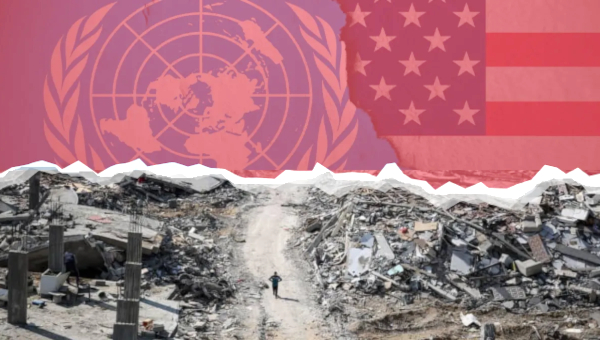International Mobilization for Peace, Action and Community Transformation
Open Letter to G7 and the Canadian Government: Reject Militarization, End Neoliberal Austerity and Address Climate Change: People Come Before Profits.
ATTN:
Prime Minister Mark Carney
Finance Minister Francois-Philippe Champagne
Windsor West MP Harb Gill
Windsor Tecumseh Lakeshore MP Kathy Borrelli
Essex MP Chris Lewis
Chatham-Kent-Leamington MP Dave Epp

This message is from IMPACT G7, a coalition of concerned residents and local organizations from Windsor-Essex, Ontario, who share a common perspective. Our community has been known for generations as the “Automotive Capital of Canada.” Our region’s economy is built on manufacturing and agriculture. Like other communities throughout Southwestern Ontario, Windsor has lost tens of thousands of manufacturing jobs due to so-called ‘free’ trade agreements, for example, the North American Free Trade Agreement (NAFTA).
The G7 meeting that will take place from June 15 to 17 in Alberta comes in the wake of US President Trump’s assault on Canada’s sovereignty and economy.
The United States has recently specifically targeted Canada’s aluminum, steel, and auto industries with regressive tariffs, violating the negotiated trade agreements, triggering layoffs and inciting fear of a deep recession.

Trump’s Tariffs
Trump’s unprovoked, illegal, and unilateral decision to sever the economic arrangements governing trade between Canada, Mexico, and the United States, as well as those held with other countries, has exposed the folly of having made these unequal economic arrangements, which have served to enrich the few while harming many of our fellow citizens.
These past decades, especially since the 2008 banking crisis, have exposed the ill-considered G7 strategy of embracing neoliberal policies that result in governments prioritizing corporate interests while deregulating and privatizing public services and disregarding community and labour needs.
It has led to unequal wealth between the average person and those at the top of the economic ladder. Most Canadians now live paycheck to paycheck, while fearing for the well-being of their family and neighbours. They are experiencing the deterioration of our public healthcare system and the further erosion of supports that might allow for affordable housing, well-paying jobs, reasonably priced food and other essentials, and a decent retirement. They are also suffering from unresolved social and environmental justice issues, such as race and gender inequities, the lack of justice for Indigenous communities, uncontrolled climate change, toxic contamination of our air, water, soil and workplaces, the expansion of the military, and regional and social disparities.
For many Canadians, Trump’s threats to incorporate Canada into the United States as its ‘51st State’ have sparked national outrage and engendered a political reawakening that calls for a new focus on much needed but often ignored national priorities. Besides the regressive tariffs and threats to Canada’s sovereignty, the Trump administration has unleashed a frightening onslaught on its own citizens.
Authoritarian practices in the United States – including the stigmatization of immigrants and vulnerable minorities, attacks on academic freedom and freedom of speech, and the erosion of environmental protections and vital social programs – serve as a warning to us all. We must confront the deep inequities within our own country and resist the social conditions that have enabled the rise of Trump and similar authoritarian movements.
It is increasingly apparent that the American-dominated global capitalism – kept afloat by relentless consumerism and debt – is failing and, as a result, traumatizing scores of countries, including Canada, which now face an economic and social crisis of historical significance.
It is no longer sustainable to follow these failed economic and political policies that are inherently unjust.
New International Strategy
We need a new international strategy – one that rejects the destructive forces that divide people and drive global injustice. This means opposing the push for military rearmament, fueling genocide in Gaza and the slaughter in Ukraine, and addressing the gross inequity that forces the Global South to shoulder the heaviest burdens of a rapidly warming, increasingly uninhabitable planet.

We must also confront the relentless pursuit of profit at any cost, including the systemic drive for infinite economic growth and the intentional design of products to fail through planned obsolescence. A just and sustainable future demands bold change – rooted in solidarity, equity, and ecological responsibility.
We hereby call on the Canadian government representatives at the G7 meeting to advocate for a new path that unites all countries in a common set of objectives that respect and promote the well-being of all of humanity, not just the economic and political power of the wealthy.
We call for an end to the decades-long globalization and neoliberal economic and social policies that have enriched the powerful in each of our countries at the expense of the population and the environment as a whole.
We are now facing a national emergency requiring a radical new approach.
The continuing disenfranchisement of younger Canadians, immigrants, Indigenous populations, women, and other marginalized groups, coupled with a growing militarist approach to international affairs, threaten to tear our societies apart. And the continuing failure to seriously address the existential danger of uncontrolled climate change increases the threat of falling into an apocalyptic future.
The refrain used by generations before us still resonates today: People come before profits.
We firmly believe that this premise should shape the decisions being made by the G7. •
Signed:
Letter endorsed by:
Ontario Council of Hospital Unions-CUPE
Windsor and District Labour Council
Summary
IMPACT G7 urges Canadian leaders to reject neoliberal and militaristic G7 strategies and instead pursue policies centered on equity, sovereignty, public welfare, and environmental sustainability.
1. Economic Decline and Trade Agreements
- Windsor-Essex, a historically manufacturing-driven region, has suffered major job losses due to past so-called ‘free’ trade agreements.
- US tariffs on aluminum, steel, and autos – imposed under the Trump administration – have worsened economic insecurity and violated existing trade agreements.
2. Critique of Neoliberalism and G7 Policies
- The G7’s long-standing embrace of neoliberal economic policies (privatization, deregulation, globalization) has disproportionately benefited the wealthy while harming working-class and marginalized populations.
- These policies are seen as responsible for economic inequality, deteriorating public services, and environmental degradation.
3. Canadian Sovereignty and Trump Administration
- Trump’s actions, including tariffs and rhetoric about making Canada the ‘51st State’, are seen as a direct threat to Canadian sovereignty.
- The US under Trump is portrayed as authoritarian, with attacks on civil liberties, marginalized communities, and environmental/health protections.
4. Social and Environmental Justice Crisis
- Canadians face growing inequities (economic, racial, gender-based) and systemic failures in healthcare, housing, climate policy, and Indigenous justice.
- Militarization, environmental harm, and social unrest are seen as symptoms of a broken global system.
5. Call for Transformative Change
- The statement calls for a radical shift away from global capitalism and militarism toward international cooperation focused on human well-being.
- US-led global capitalism is seen as unsustainable and harmful. It is driven by relentless consumerism, planned obsolescence, and debt dependency.
- Advocates for G7 leadership to prioritize people over profit, end neoliberalism, and address climate change, inequality, and social justice.
6. National Emergency and Urgent Reforms
- The current situation is labeled a national emergency, requiring immediate and bold political and economic reforms.
- IMPACT G7 urges the Canadian government to reinvest in public services, support marginalized communities, and reject the politics of division and exploitation.





